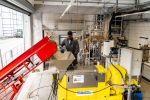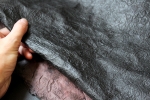Baden-Württemberg and its researchers
The universities, universities of applied sciences and research institutions in Baden-Württemberg cover the full range of research topics and subjects that are essential for the bioeconomy, including in particular the agricultural sciences, forestry, soil science, plastics technology, materials science, textile engineering, food technology, energy, food technology, economics, chemistry, biology, biotechnology, ecology and ethics.
The Baden-Württemberg Ministry of Science, Research and the Arts established a bioeconomy strategy group in 2012. The strategy group consisted of experts from universities, universities of applied sciences and non-university research institutions who analysed the situation in Baden-Württemberg against the context of the bioeconomy.
They analysed the strengths, weaknesses, opportunities and threats of a broad range of bioeconomy-related aspects. At the end of the process, the strategy group suggested three research areas in which research projects could be carried out to push forward the transition from a fossil fuel-based to a biobased economy in Baden-Württemberg in the medium and long term.
In 2013, the Baden-Württemberg Ministry of Science, Research and the Arts adopted the "Baden-Württemberg Bioeconomy Research Programme" which aims to implement the research strategy developed by the strategy group. The ministry will provide funding for relevant research projects as well as structural measures. The programme runs for five years and is financed by the Ministry of Science, Research and the Arts. Major focus will be placed on the following three themes: biogas, lignocellulose and microalgae.

